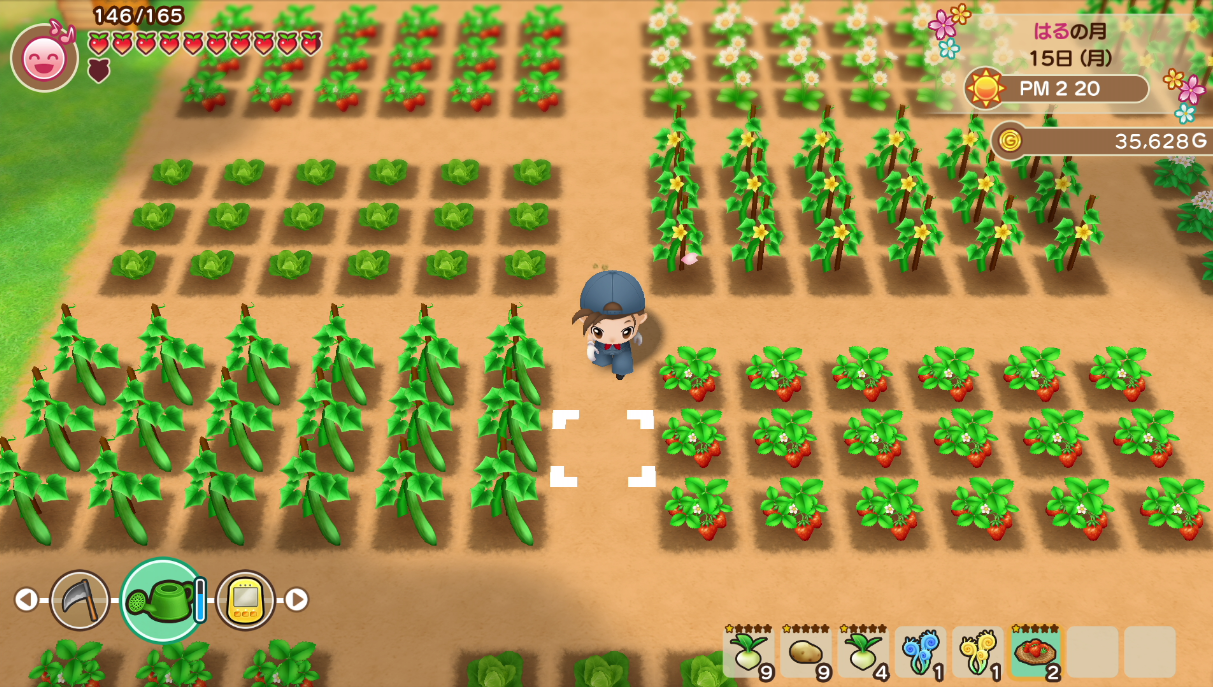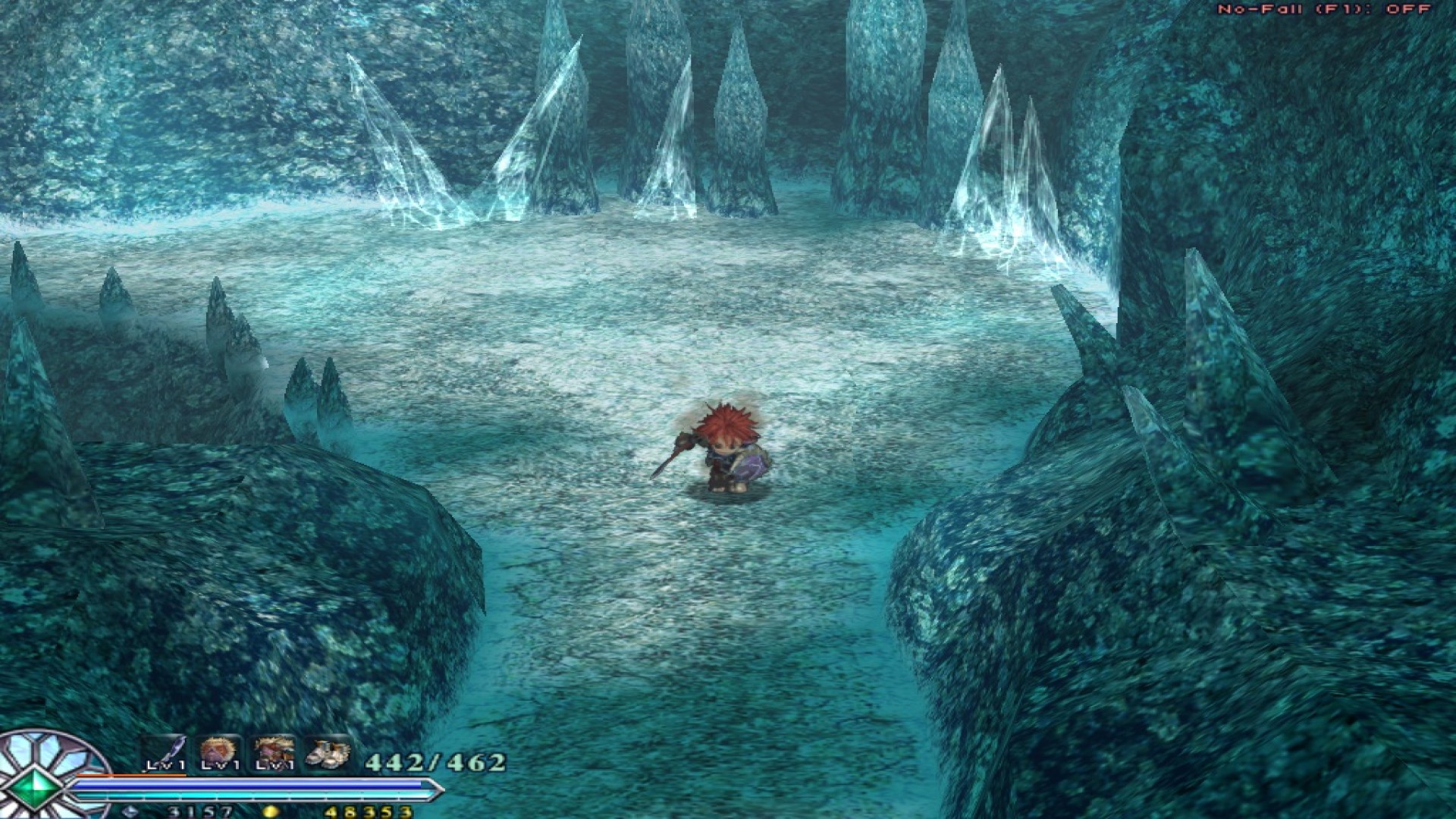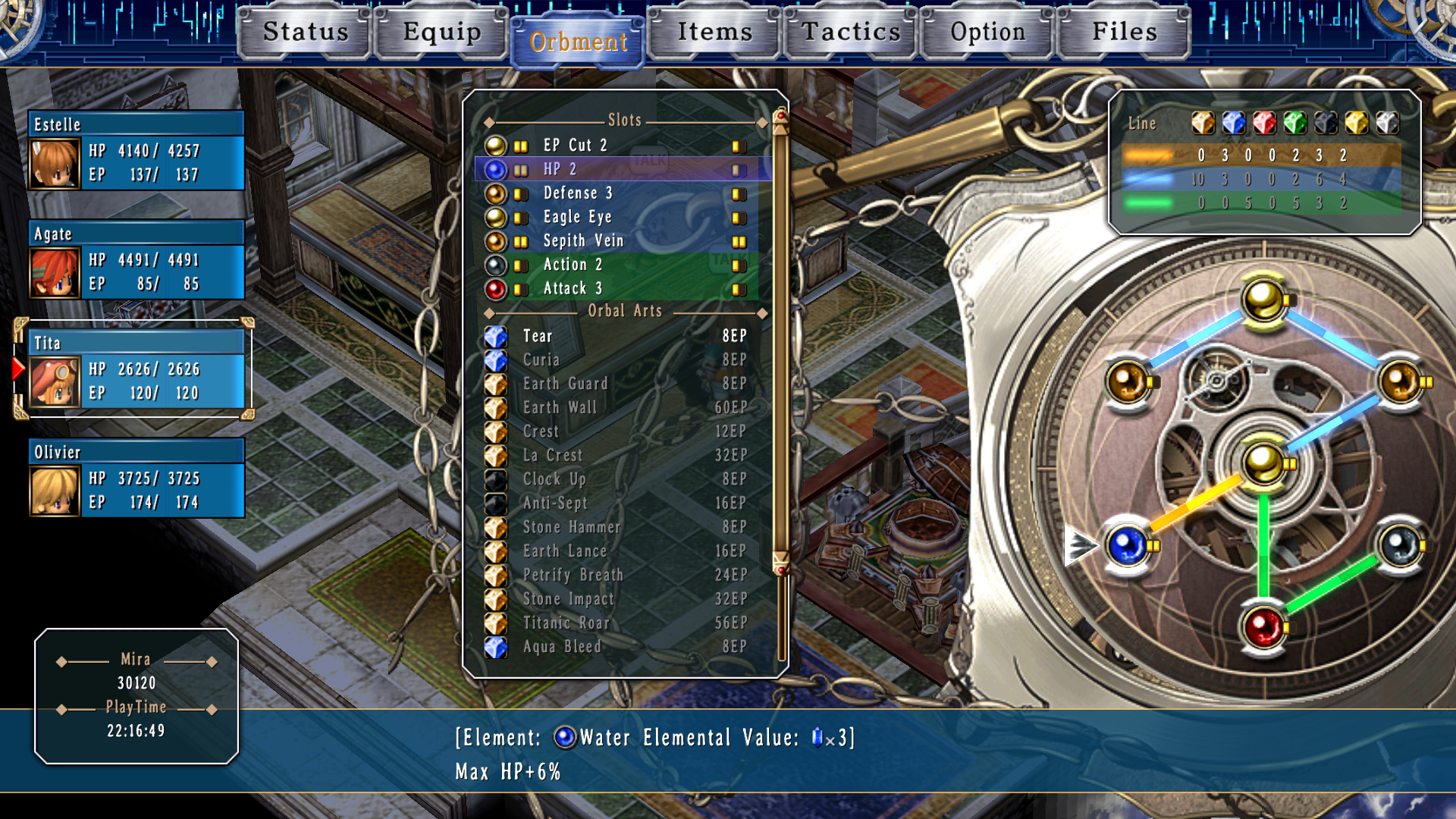A Marvelous catalog
GamesBeat: As it stands today, what are the most important franchises that Xseed publishes?
Berry: That’s probably where we’re most closely tied to our parent company, Marvelous. So it definitely will be the Marvelous franchises, like Story of Seasons. That was formerly known as Harvest Moon over here. So rebranding that as Story of Seasons in the U.S. years ago was huge project for us. And then the offshoot of that series, Rune Factory, is absolutely critical for both us and Marvelous, and then they do have other titles as well. The Senran Kaguna series. They’ve been putting out a couple series on the based off the Fate IP. So, yeah, I would say we’re definitely very much intertwined with Marvelous in terms of our biggest titles and IPs that we’re working on right now.

Above: Story of Seasons is the current name for the Harvest Moon series.
GamesBeat: Why did you decide that Harvest Moon needed to be rebranded as Story of Seasons? Harvest Moon definitely had brand recognition, so I’ve long been curious about that.
Berry: That is actually one that we were watching from the sidelines. And it’s basically our parent company Marvelous Japan, and their previous publishing partner, Natsume of America. Natsume had the trademark for the name Harvest Moon, when they decided to change the Japanese name of Bokujō Monogatari to something more appropriate for the West. And from what I can gather, that may have been a business practice that was more common in the ’90s, when people didn’t really know too much about the international market and you will let your partner handle everything.
June 5th: The AI Audit in NYC
Join us next week in NYC to engage with top executive leaders, delving into strategies for auditing AI models to ensure fairness, optimal performance, and ethical compliance across diverse organizations. Secure your attendance for this exclusive invite-only event.
But I believe, as time went on and development budgets climbed, and you’re looking at spending millions of dollars per title, our Japanese parent company Marvelous wanted full control of their own IP worldwide. And if their U.S. publishing partner who trademarked the English name wouldn’t give them back that English name, I think they wanted to go with a different brand that they have full control over. Despite knowing how much equity and love people had for that well-known title Harvest Moon, which, Natsume admittedly did a great job building up over the years. So I think you can sort of see both companies’ standpoints on why Marvelous wouldn’t want that English name as their own IP, as well as Natsume having basically taken that series of farming game back in the 90s, probably people laughed at that thought at first. Having really grown the series, they probably want to hold on to the trademark name.
GamesBeat: One of the best series you publish over here is Trails in the Sky. How did the partnership with Nihon Falcom come together?
Berry: I believe that partnership started with us signing a few of their games together back during the PSP era. Once again, our old president and initial founder, Jun Iwasaki, getting together with Nihon Falcons president. And I believe they signed some of the Ys titles together, such as Ys: Oath of Felghana on PSP, as well as Ys Seven and the Ys I & II Chronicles remake, as well as the Trails in the Sky series. So that’s how it started. And then from there, the relationship has grown to include more titles and more platforms.
GamesBeat: One of the things I enjoy about Xseed games like The Legends of Heroes is that the stories of the English localizations are so coherent, I’d assume they were developed in English, not Japanese.
Berry: That is the biggest compliment that any localization company can hear. That is the No. 1 goal: having people think that the English text in a video game from somewhere else, such as Japan was originally developed in that language.
GamesBeat: How hard was it to localize The Legend of Heroes: Trails in the Sky?
Berry: I don’t have all the details here, but what I can say is the first one of those that we worked on, Trails in the Sky, was a massive project, by far our largest today. I can’t remember the exact numbers and might have been upwards of 1.3 million-to-1.5 million characters of Japanese text that needed to be localized into English. And I think that something like that is more common these days, but back then, that is just an unheard of amount of text to localize for a Western release. So we spent a lot of time and resources doing that.
And when the title finally launched on PSP, it didn’t really live up to our sales expectations, despite rave reviews and fans loving it. That sorta affected not just us but Nihon Falcom in Japan as well on what do we do about the next title, Trails in the Sky SC, the sequel, because the first Trails in the Sky ends on a cliffhanger, and the sequel picks up right from that cliffhanger. And in the sequel, the text was even much larger than the already ridiculously huge first title. So, yeah, that was probably one of our toughest periods of localization.
But eventually, the decision was made to move forward on that, and while Trails in the Sky SC was being localized, the first Trails in the Sky released it on PC on Steam. And it just had a massive Week One for us. It just completely reinforced that we made the right decision to keep going with the series.
Opening the Valve
GamesBeat: Wasn’t Xseed one of the first publishers bringing games from Japan to have such success on Steam?
Berry: I believe so, yes. We definitely like to think that we were one of the first ones. Back in those days, we would talk about Steam, and it really wouldn’t even be part of the conversation, whereas these days pretty much any Japanese company is very much concerned about Steam sales and the timing of the release and the pricing. We were definitely one of the few at that time.
There’s a company called Carpe Fulgur out there [Recettear: An Item Shop’s Tale]. It’s just a two-man team that had some success localizing even smaller indie types of Japanese games and releasing those to Steam. And they actually did help us out quite a bit in terms of advice, and they were the guys that were initially taking on the localization of the sequel, Trails in the Sky SC, when we were just all down and very hesitant about moving forward with the series. So we’ll be forever grateful to those guys.

Above: Ys: Oath of Felghana was Xseed’s first release on Steam.
GamesBeat: In terms of getting games on PC, who at Xseed spearheaded the effort to get on Steam?
Berry: That was me. And once again, the Carpe Fulgur company, they released a title on Steam called Recetter. And I did talk to those guys a lot, Andrew and Robin. And Andrew was always very nice and willing to share with us and kept telling us that you know you could do this well on Steam, you just need to bring the Japanese content. The Steam users really want it. And, yeah, I was all for it as well. So it took some time to get us up and running, but once we did, it really paid off for us.
GamesBeat: Was it difficult to convince Marvelous back home that Steam was important and that Xseed needed to go in that direction?
Berry: At times, it was. Keep in mind the Marvelous titles that we brought to Steam weren’t until much later. So most of our early stuff was all Falcon titles that we were bringing to Steam.
GamesBeat: And then when Marvelous was finally ready …
Berry: Over the years we’ve learned the right and wrong things to do with a Steam port, and what their users are looking for. And so we’ve created a very detailed checklist on what kind of features have to be implemented on a Steam release. So sending those over to Marvelous or pretty much any other partner who was not familiar with Steam, they would initially balk and say, “Why do we have to do all these things?” So that’s a difficult first conversation that we had with not just Marvelous but pretty much any other partner that we have, where we needed them to implement our Steam wishlist of features.
GamesBeat: One of your more recent games is the new BurgerTime. How did you get involved with that? It was a surprise when I learned about it.
Berry: That is part of the Marvelous group. The company now owns not just BurgerTime but the rest of the old Data East IPs. They are called G-Mode, and G-Mode is a 100%-owned subsidiary of Marvelous. They are even in the same Marvelous office in Japan. So that’s how that conversation came on. And, you know, we heard that G-Mode was doing a BurgerTime update for Switch. Yeah, we were definitely excited about it.
GamesBeat: It’s good, and that surprises me!
Berry: Us, too, actually! And even G-Mode, I think developing for console is very new to them, because they’ve mostly been in the mobile space. It’s been great working with them and trying to teach them what to expect on the console side in terms of sales numbers and discounts and how it’s different from mobile so you need to watch out for this and that. They made an excellent game. It’s a lot of fun.
Embracing Japanese RPGs
GamesBeat: Why are JRPGs so important to Xseed? Is that just because that’s something you and the rest of the founders really wanted to focus on, or have you learned something else about the market that’s drawn you in this direction?
Berry: I think that RPGs are at the core of what fans of Japanese games really like. I’m sure there are great fighters and action games that come out of Japan, but when when your country has its own subgenre, JRPG, you know that you’re doing something right of high quality that there’s a big fan base for, or a decent fan base. And also I think it hits what we discussed earlier about, maybe something that the bigger publishers will overlook due to the amount of resources it takes to translate all that text to redo all those voices for something that is not going to sell as much as you know a sports game or an action game will. So that is where our core competency really shines: localizing and promoting the Japanese RPG.

Above: The Legend of Heroes: Trails in the Sky SC is one of a number of JRPGs in Xseed’s catalog.
GamesBeat: Xseed localizes many Japanese games for the West. Does it work the other way around, with you sending games from the West to Japan?
Berry: So that is something that we have been doing, or been attempting to do more. For a recent example, the indie title Freedom Planet. That was a big hit on Steam. It was self published, but we worked together with the developer Galaxy Trail on the Switch version where we are the publisher on the Switch version. And we actually translated the game into Japanese, and then we had our Marvelous Japan side release it on the Japanese eShop for switch. So we are looking more into that direction as well.
GamesBeat: Have you ever thought about taking a studio like Zeboyd and their games like Cosmic Star Heroine, which is Japanese RPG made by a Western studio, and bringing their games to Japan?
Berry: Absolutely. Yes, we would definitely love to do something like that.
Xseeding success
GamesBeat: What’s the best-performing Xseed franchise? Is it Ys or Trails, or is it something else?
Berry: That is a tough call. I’d say it may have to be Rune Factory right now. Based on the great success that Rune Factory 4 had on the 3DS, we ended up doing more than 250,000 units, between physical and digital, since it launched in 2013. And even now we’re shipping more 3DS product of Rune Factory 4, and then the upcoming Rune Factory 4 Special, the HD remake for the Switch, there’s a lot of excitement about that. So I’d say is our biggest franchise right now.
GamesBeat: Xseed localizes fighting games, too. How well do they do for you?
Berry: The main fighting game that we did was Nitro Plus Blasters. We released that on PS4 and PS3, and then later on Steam. That did OK for us. I think part of the issue is that those characters were based off of visual novel games, so a lot of people are not familiar with the characters in that fighting game since there were IPs in which a lot of the games were not released in English in the West. But as a fighting game, its mechanics were solid. And it did decent.
GamesBeat: And you’re doing Granblue in 2020? What are you expecting with this more established brand?
Berry: That title we feel has a incredible amount of potential. Between the big IP Granblue Fantasy and the development team of Arc System Works being probably the most established development team of 2D fighters out there, between the Dragon Ball Fighterz that they developed for Bandai Namco or ever their own established franchises like Guilty Gear — we are incredibly excited about it.
GamesBeat: And your slate includes, what, seven games for 2020 and beyond? And from what I see, you have a lot of variety. You’ve got Rune Factory, RPGs, and fighting games. Is that balance what you’re looking for in the future?
Berry: Yes, absolutely. We are genre-agnostic. We’re willing to publish any quality games of any genre, and even in terms of platforms, we’re willing to look at pretty much all platforms, except for mobile.
Content is king. And wherever the best games are, we’re going to be there, hopefully.
Correction, 10:13 a.m. Saturday: Fixed the list of names that Marvelous worked with to remove incorrect ones (Genki and tri-Ace) and fix spelling of Team GrisGris. I apologize for the errors.


